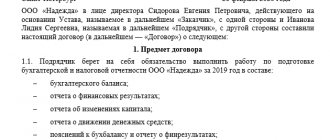Judicial representatives are specialists who help individuals and legal entities (plaintiffs and defendants) conduct cases in courts of all levels and jurisdictions. Litigation will be much faster and more successful if you delegate your powers to a representative in court. Professionals not only represent your interests, but also make strategically sound decisions, guided by common sense and the law, not emotions. This means that the likelihood of winning your case in court increases dramatically.
Why is a judicial representative appointed?
Lawyer or representative? What is the difference between them? And why hire a representative when there are so many lawyers offering their services? Customers seek legal services because they are incompetent in the field of law, so it is important for them to understand what functions these experts perform and what the difference is between them.
A lawyer is a specialist with a narrower profile. His task is to analyze the case, identify all the evidence and possible omissions, and defend his client in court.
The plaintiff or defendant consults with a lawyer, discusses the citizen’s behavior in court and outside it - they develop a single line of action. Their interaction is carried out only in relation to specific legal proceedings. Moreover, the lawyer can only appear once - at the actual hearing in court. This may be quite enough to achieve results.
Representation in court is a broader service. It includes all actions preceding the trial, conducting the case, defending the client and working with the results of the trial (Article 48 of the Code of Civil Procedure of the Russian Federation).
Although representation is a voluntary service, appointing a representative in court is increasingly becoming a necessity. Not every person can convincingly prove his position to a judge, referring to legal norms and laws.
Some citizens do not want to appear in court at all for various reasons and entrust the representation of their interests to professionals. There are plenty of reasons to appoint a judicial representative. Here are the main ones:
- impossibility of attending the trial - physical, geographical, moral;
- incompetence in legal issues and subtleties;
- incapacity of the plaintiff/defendant (due to age or health);
Citizens and legal entities are not limited in any way in choosing a representative in court. This may be an individual specialist or a team of professional lawyers.
The grounds for representation in court are also not limited - in addition to the above reasons, the applicant can turn to a representative due to his own employment or a simple reluctance to personally contact the judicial system.
Typical mistakes when doing business on your own
The plaintiff and defendant have the most rights in the court of first instance (Article 35 of the Code of Civil Procedure of the Russian Federation). Citizens often miss out on available opportunities due to lack of experience in participating in the process and lack of understanding of the legal nuances of the situation. The most common mistakes are violation of the requirements for the content of the claim, as well as:
- Ignoring the defendant's objections. Often, the plaintiff is confident that he is right and does not provide the court with additional evidence refuting the opponent’s arguments.
- Lack of preparation for the hearing. You have to answer unexpected questions from the judge and experienced lawyers representing the interests of the opposing party. It is easy to get confused and answer incorrectly, but all explanations are recorded in the protocol and used as evidence.
- Missing the deadline for filing a complaint. If you disagree with an interim determination or a final decision, only a timely and legally competent appeal can ensure a successful outcome of the case.
Advantages of the Moscow Legal law office:
- honesty: assessing the real prospects of the claim based on a thorough study of the situation and discussing them with the client;
- professionalism: representation in court of the interests of clients by highly educated lawyers who have extensive experience in successfully participating in civil proceedings in cases of various categories;
- universality of cooperation: willingness to take on all the concerns of conducting the case or prepare separate documents and perform one-time procedural actions;
- Availability: free consultation online and by phone 24/7;
- compensation of expenses: recovery of payment for representative services from the losing party.
What are the powers and procedure for the work of a representative in court?
Any adult person can represent the interests of the plaintiff or defendant. In some cases, the representative does not even have to have special education; the main condition is full legal capacity.
The task of a judicial representative is to perform a certain list of executive duties for the principal (client). However, such transfer of rights and actions, although voluntary, must be officially recorded. The principal issues a power of attorney to his representative in court. This document is subject to official endorsement by a notary.
At the very beginning of representation in court, a power of attorney is not required - a specialist can familiarize himself with the case, collect and analyze information, send requests to witnesses, order an expert examination even without trust documents.
Such actions are general and do not require special confirmation from the principal. You can also participate in court hearings without a power of attorney.
But in most cases, a judicial representative performs special functions that require special permission from the client. To understand all the general and special powers of a legal representative, it is necessary to determine the possible types of representation in court:
- Voluntary. This is a free choice on the part of the plaintiff or defendant. Individuals and legal entities can appoint any person as a representative of their interests - a lawyer or an outsourced professional, a legally savvy friend or relative. Such services may be free (by agreement) or paid (by agreement). The choice of options here is huge. The representative can carry out all the preparatory work (drawing up a claim, submitting it to the court, collecting testimony) or at the same time express the position of his client at the court hearing.
- Legal. Here we are talking about mandatory representation of interests on legal grounds. These may be the parents (adoptive parents) of a minor child, guardians of an incapacitated citizen. In some cases, it is impossible to close a case without involving a legal representative - for example, the bankruptcy of an individual or legal entity can only be recognized if an arbitration manager is appointed. Its task is to restructure debts, sell property assets (in order to pay off debts) and optimize the financial condition of the bankruptcy applicant. Liquidation of a company also requires special representation. The interests of a legal entity are represented in court by one of the members of the liquidation commission.
- Public. Representatives conduct social affairs. Trade union organizations, tenants' associations, and public institutions can initiate representation of interests.
- Assigned. This is a special situation - the representative is appointed by the court. The lawyer represents the interests of the defendant, who cannot be found by the time of the court hearing. However, if a person is deliberately hiding from the judicial authorities, a representative will not be appointed for him.
After the parties have issued a power of attorney, the representative will be able not only to participate in court proceedings, but also to prepare for them - to draw up a claim for the plaintiff or a reasoned response for the defendant, collect the necessary documents, appoint examinations, formulate and transmit petitions, and communicate with witnesses.
If the outcome of the proceedings is successful, the specialist has the right to obtain a decision for the principal. In the event of an undesirable verdict, the lawyer can file an appeal and challenge the judge’s findings to higher authorities.
The main thing is that the representative must have a power of attorney to perform all these actions. If he cannot prove his authority, then he simply will not have the opportunity to conduct the case, defend the position of his client and defend him in the courts.
Sources:
Conducting cases in court through a representative
About persons who can be representatives in court
On the powers of a representative in court
Authorized representatives
To protect the rights of the person being represented, the authorized representative is required to provide the judge with a power of attorney for representation.
This document can be certified by a notary, or persons to whom the law grants such a right, for example, an employer, the head of a prison, the commander of a military unit, etc. If representation is required by the organization, the power of attorney is signed by the head and the company seal is also affixed.
Very often, unnecessary information is included in the power of attorney, for example, the rights of the representative state that he can ask questions in court, get acquainted with the case materials, etc. It is enough to simply indicate that all powers provided for by law are transferred to the authorized representative.
But there are also rights that need to be secured in a power of attorney. For example, the possibility of filing an application, concluding a settlement agreement, etc.
Do I need to indicate the number of the case in which the representative will participate? This is an optional condition; moreover, experts recommend not to indicate the number. If the represented person is involved in more than one lawsuit, then a power of attorney without a case number will allow the representative to protect the client's interests in all of these processes.
A lawyer can participate in a case without a power of attorney if he has a special warrant issued by a lawyer. But the above extended powers will still require documentation in the form of a power of attorney.
If you have found a representative who suits you, but have not had time to formalize his powers, and the trial has already begun, you can submit an oral or written petition to allow the representative to participate.
Subjects of representation in court
Representation involves performing a wide range of actions in court on behalf and in the interests of the represented person, therefore the representative must meet certain general requirements:
1) the representative must be an adult and capable person who is not under guardianship or trusteeship. However, by virtue of the law, minors can sometimes be representatives (for example, when they acquire full civil procedural capacity upon marriage);
2) the representative can be an organization. In this case, the organization does not necessarily have to have the status of a legal entity; it is enough that it is legally endowed with representative functions. This provision applies primarily to public representation, but may also apply to legal representation. For example, the fulfillment of the duties of guardians and trustees in relation to children whose upbringing is carried out entirely by children's institutions, as well as adults in need of guardianship and trusteeship and placed in special institutions, is entrusted to the administration of the relevant institutions.
In some cases, additional requirements may be imposed on the representative:
1) representatives cannot be a judge, investigator, prosecutor, with the exception of cases of legal representation and participation in the process as representatives of the relevant court or prosecutor’s office. Such restrictions are related to the type of activity of judges, prosecutors, investigators and are established by law as a prohibition for combining the main activity with other paid activities, except for scientific, teaching, literary and other creative activities. Restrictions are also established in relation to civil servants, who are prohibited by law from acting as representatives in court, unless they are legal representatives or do not represent the interests of relevant organizations in court. A similar restriction is established for notaries. Guardians and trustees do not have the right to represent wards in court in a dispute between the ward and the spouse of the guardian or trustee and their close relatives;
2) representatives cannot be lawyers who have accepted an order to provide legal assistance in violation of the rules established by law.
In accordance with the law, a lawyer has no right:
1) accept an order from a person who has applied to him for legal assistance in cases where it is obviously illegal;
2) accept an order from a person who has applied to him for legal assistance in cases where he:
- has an independent interest in the subject of the agreement with the principal, different from the interest of this person;
- participated in the case as a judge, arbitrator or arbitrator, mediator, prosecutor, investigator, inquirer, expert, specialist, translator, is a victim or witness in this case, and also if he was an official whose competence was to make a decision in the interests of this person;
- has a related or family relationship with an official who took or is taking part in the investigation or consideration of the case of this person;
- provides legal assistance to a client whose interests conflict with the interests of this person.
Changes in the field of judicial representation
The main change in 2021 in the field of judicial representation is the prohibition of previously disbarred lawyers from acting as representatives in court proceedings.
The law also lists the following grounds for disbarment:
- entry into force of a court verdict finding a lawyer guilty of committing an intentional crime;
- non-fulfillment or dishonest fulfillment of undertaken obligations;
- non-compliance with legal ethics standards;
- disclosure or misuse of information related to the provision of representative services.
Amendments to the relevant documentation on judicial representation came into force on March 1, 2021.
Source - https://kinokvartal.rf/nalog/usloviya-predstavitelstva-v-sudah-s-2019-goda-sovet-yurista.html
Drawing up an agreement for representation of interests in court
If the agreement is concluded with an organization or individual entrepreneur, it must be concluded in writing. However, it does not require notarization or any special registration.
If both parties are citizens and the price of the contract does not exceed 10,000 rubles, the contract can also be concluded orally.
At the same time, its use for the purpose of reimbursement of expenses incurred by the client is extremely doubtful due to the bias of the information transmitted orally by interested parties, and therefore we advise in all cases to enter into agreements at least in simple written form.
As for notarization, the law does not oblige, but does not prohibit the parties from resorting to it.
Additionally, we note that the contract does not necessarily represent a single written document; An example when, despite such a deceptive name, it consists of several documents, can be its conclusion by exchanging a written offer and acceptance between the parties.
Participation in court hearings
When the documents are submitted and the evidence base is collected, the consideration of the case begins. The judge sets a date for the hearing. The representative will definitely arrive at the authorized authority and protect the interests of the customer. A person has the following rights and obligations:
- provide petition and evidence;
- protect the interests of the customer in all available ways that do not contradict the law;
- confirm your authority.
The court will take into account the arguments of both sides. The final decision largely depends on the professionalism of the human rights defender. It is issued after all the evidence has been considered and the positions of the participants in the hearing have been taken into account.
Appealing a court decision in other instances
The court's decision is binding. However, the adopted verdict does not always satisfy the participants in the proceedings. In this situation, the law allows you to appeal the decision. To do this, you will need to contact a higher authority. A representative can also act on behalf of the applicant. You can file an appeal within one month from the date of the court decision. The terms of representation will be the same as in situations involving standard proceedings.
Our experience
Since our company’s leading practice is dispute resolution, we know first-hand how to correctly enter into agreements for representation of interests, anticipating possible difficulties in collecting the client’s expenses.
The inclusion of a large number of professionals of various profiles in the Krainev and Partners team allows us not only to achieve high quality in the drafting of contracts for the representation of interests in an arbitration court or a court of general jurisdiction, but also to keep abreast of current judicial practice.
You can sign up for a consultation, as well as find out the approximate cost of running your case, by sending a brief description of the problem to




